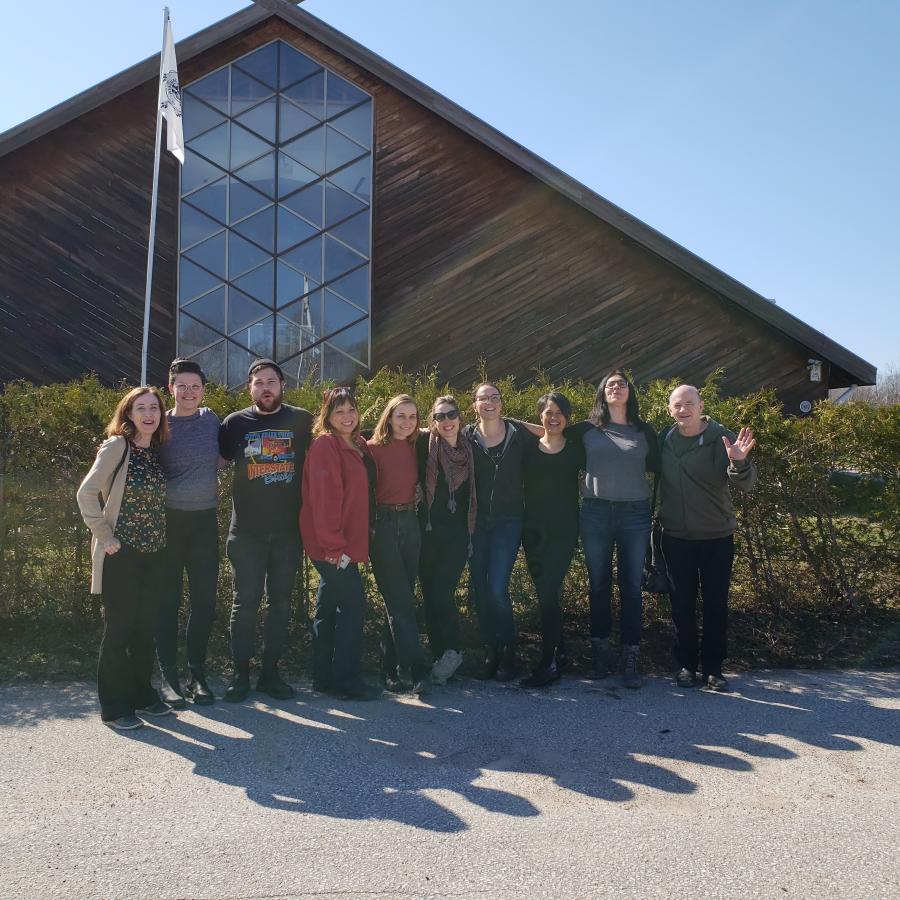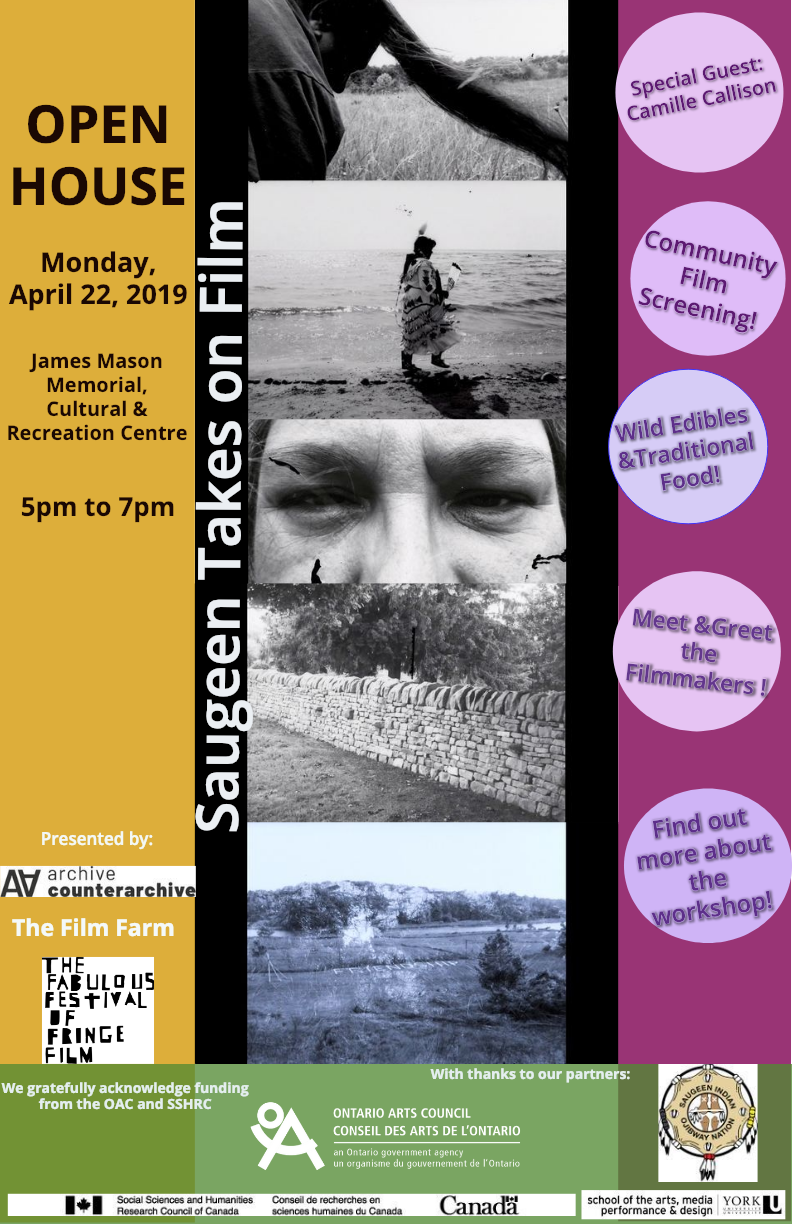Group photo of Saugeen Takes On Film's Open House participants (L-R): Janine Marchessault (A/CA Project Director), Tamara Lang (Vulnerable Media Lab Manager), Camille Callison (University of Manitoba), Alexander Granger (York MFA Student), Jessica Johnson (York MFA Student), Terra Long, Adrian Kahgee (Co-Artistic Director, Fabulous Festival of Fringe Film); Debbie Ebanks Schlums, Gail Maurice, Philip Hoffman (York University)
Along with Phil Hoffman's Film Farm and The Fabulous Festival of Fringe Film, A/CA was honoured to co-present Saugeen Takes on Film's (STOF) open house with special guest and A/CA Co-Applicant Camille Callison.
STOF is a filmmaking pilot project produced by the festival's Co-Artistic Directors, Adrian Kahgee and Debbie Ebanks Schlums, and Phil Hoffman, founder of the festival and also the Film Farm. Their artistic vision is "to explore - from an Indigenous perspective and using film as a tool - the idea of embodied and dynamic archiving within non-linear time."
"In 2018, participants chose to make films about stories and experiences in the community. They were already thinking in terms of dynamic archive. The films function as contemporary artistic output and show the evolution of embodied, cultural practice across many platforms including regalia, music, and storytelling."
Report on the 2019 April Gathering by Debbie Ebanks Schlums (GZC):
The Gathering took place in the James Mason Memorial Culture & Recreation Centre on April 22, 2019, and was a full day of programming for STOF participants, organizers, assistants, and Archive/Counter-Archive representatives to learn from and share with Lori Kewaquom and Camille Callison. All activities have Chief and Council’s support.
We were originally interested in having the Film Farm lead workshops because of the hands-on "making" aspect of the 16mm film, and especially because of the use of plants to tint and tone the celluloid. We thought there could be an interesting link to Indigenous approaches to plants that would be meaningful in this approach to making films. We passed tobacco to Lori Kewaquom, Saugeen First Nation Cultural Coordinator and knowledge keeper regarding plants. She shared with us her teachings about how to work with plants that relies on our own gifts, which are apparent if one fully acknowledges an Indigenous worldview. We learned that there were layers of meaning we could learn from the healing properties of plants that fully corresponded with the materiality of plant dyes and celluloid, and the narratives of the stories the filmmakers want to express.
Camille Callison generously shared her knowledge about how to work with archival materials in the community. We learned that archival materials in the community have potential to be linked to land claims and could even support the reclamation of language. The importance of thinking about the preservation of these archival materials was stressed as was the need to honour the wishes of the families and communities who are connected to these materials. Through Archive/Counter Archive, there will be support for the preservation of the materials, such as digitization of audio recordings on vinyl.
The day was followed by a Come and Go for the community that included the screening of last year’s STOF films.



